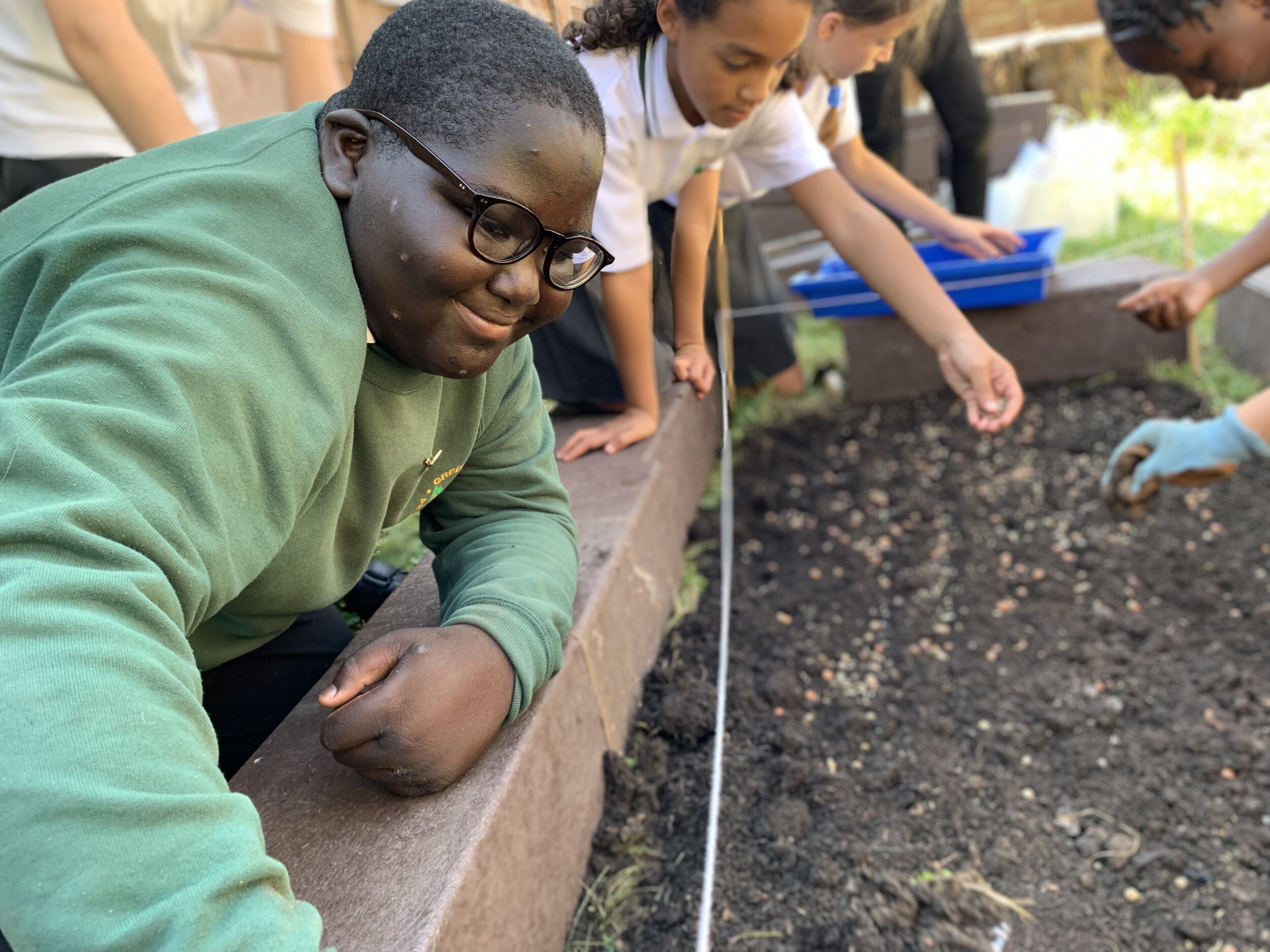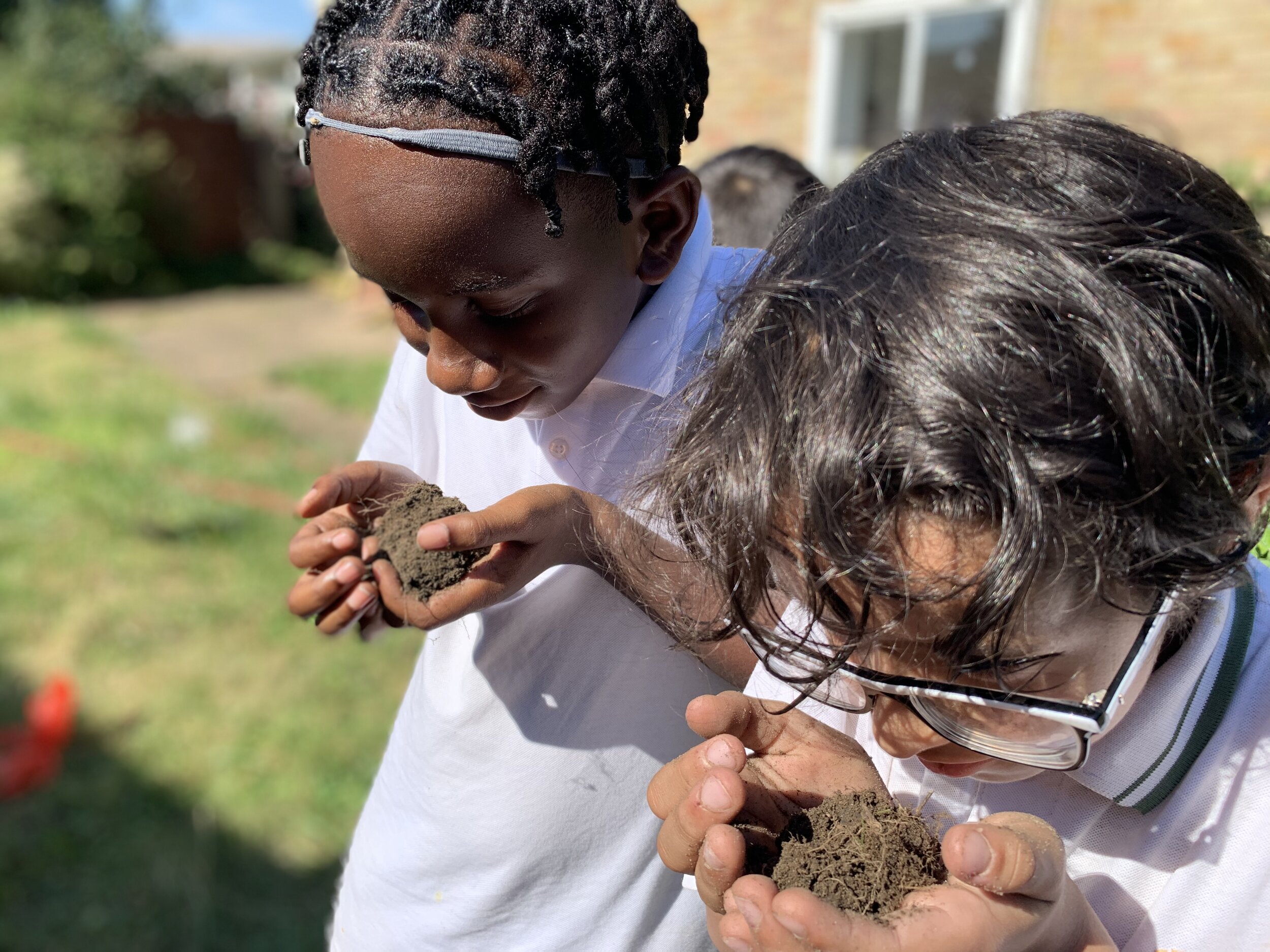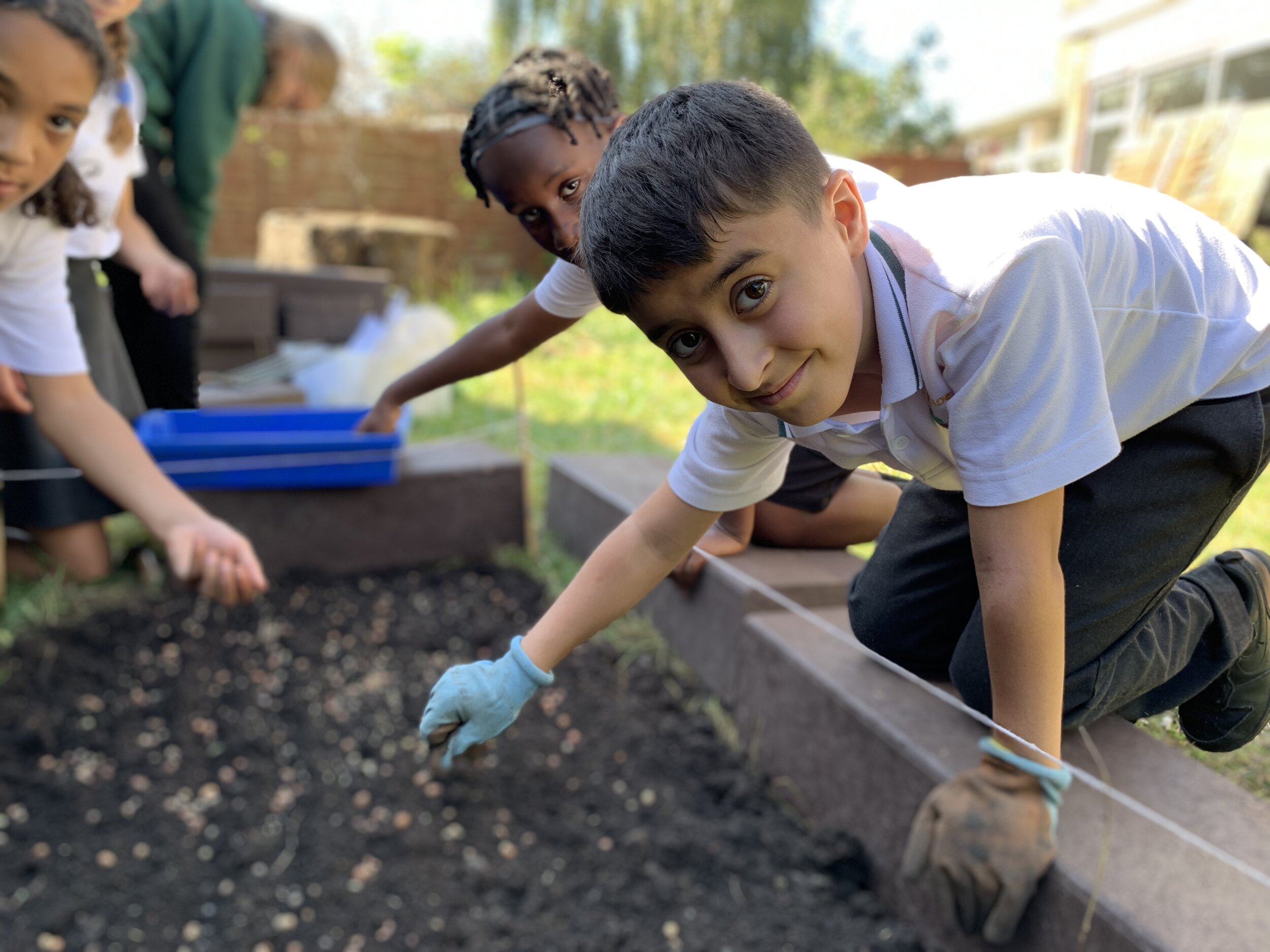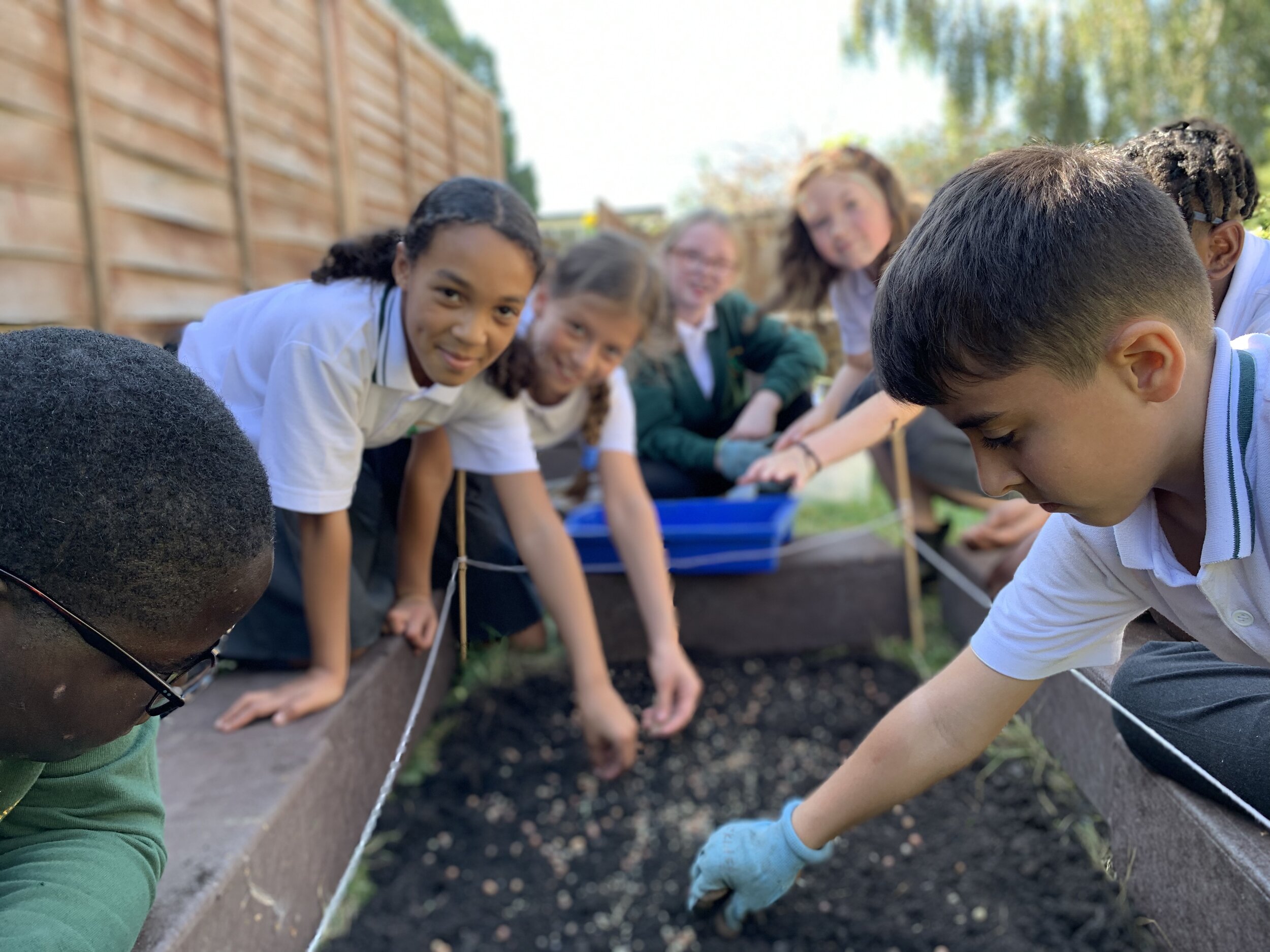Soil: How we’re helping
This year we are learning to love our soil!
We want to find out if we can improve the nutritional quality and flavour of what we grow by regenerating our soil. All of our students are involved in this year long project that aims to deepen our understanding of both science and the environment. We believe that learning about this is an important part of making students World Ready. Over the year we aim to: boost the nitrogen/carbon content of our soil using specific cover crops, leave no patch of soil bare, grow a more diverse range of plants and minimise our digging. By doing this, we hope to improve our soil and increase the biodiversity in our garden.
Our Y6 students launched the project this term and began by sending a sample of soil away for a detailed analysis. This will form the baseline for our enquiry. They have sown a cover crop seed blend including rye grass, forage peas and clovers. Over the half term they will carry out a series of tests and collect the data which we will use to track our progress. The project will be handed over to a different class each half term meaning all of our students will be involved.
November 2021:
The first phase of the soil regeneration phase is complete. Our Y6 students got to meet the team down at Melilot Farm in Cornwall who are running the same soil tests alongside us. It was great to share ideas and find out more information about how to improve the quality of our soil. So our cover crops are in, we are on track with nitrogen fixing, keeping an eye out for legume nodules and know a bit more about water infiltration. Now Y6 have passed the ‘baton’ or pH monitor onto the Y5 students who will be responsible for the project after half term.
December 2021:
Even though things are slowing down in terms of vegetable growth, Y5 discovered lots of positive things happening below the surface of the soil. The slake test showed some improvements in how well our soil structure holds together in water and the legumes have begun to produce lots more nodules on the roots. During the biodiversity study we even discovered a woodpecker has begun to visit our school garden! The cover crops continue to keep our soil covered and help prevent erosion as well as fixing nitrogen. Now the responsibility for the project passes to Y1 from January.
Spring 2022:
Y1&2 were fabulous ambassadors for the soil project! Their enthusiasm was totally infectious and they are keen to tell everyone all about why it is so important that we care more about our soil. They were fortunate enough to have a video call live from the field with Tim Williams down in Cornwall. Tim is a pioneering regenerative farmer who has been sharing our journey with us since we began. Our students had lots of questions for him about how he is getting on with nitrogen fixing and carbon sequestering! We were able to share with him the good news about the increase in our legume nodules and how well our cover crop plants have been doing at reducing slug damage on the over wintering chard and brassicas. He was able to give us some advice about our wheat field and thanks to the addition of some of our homemade ‘compost tea’, it is now growing from strength to strength.
Summer 2022:
Y3&4 took on the soil project with great enthusiasm over the summer term. All the work we have done over the year to care for the soil has really paid off as we were able to pick a constant supply of veg for the kitchen including lettuce, kale, spinach, beans and courgettes. It is all really delicious! Everything has really boomed and it seems we have proved the big question that we set out to answer: by looking after the soil and harvesting the power of nature we are able to produce the nutritiously rich and flavoursome food we can. We have lots more veg to come over the summer and we look forward to eating it all in the Autumn term.




